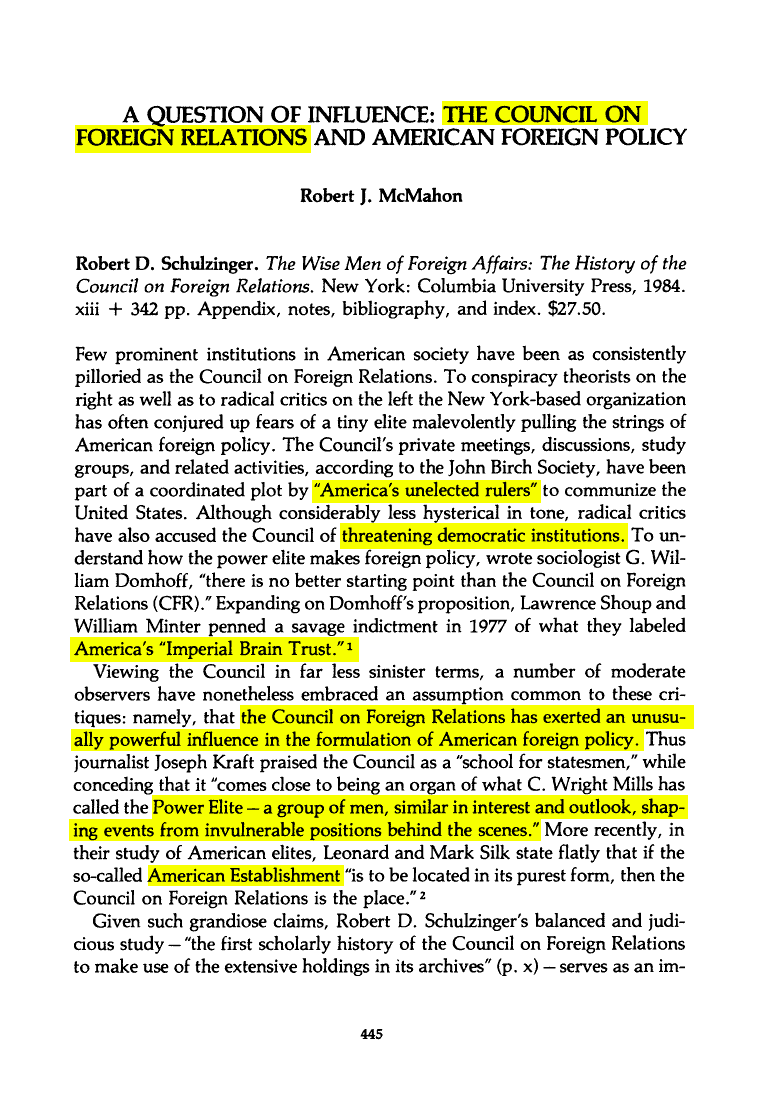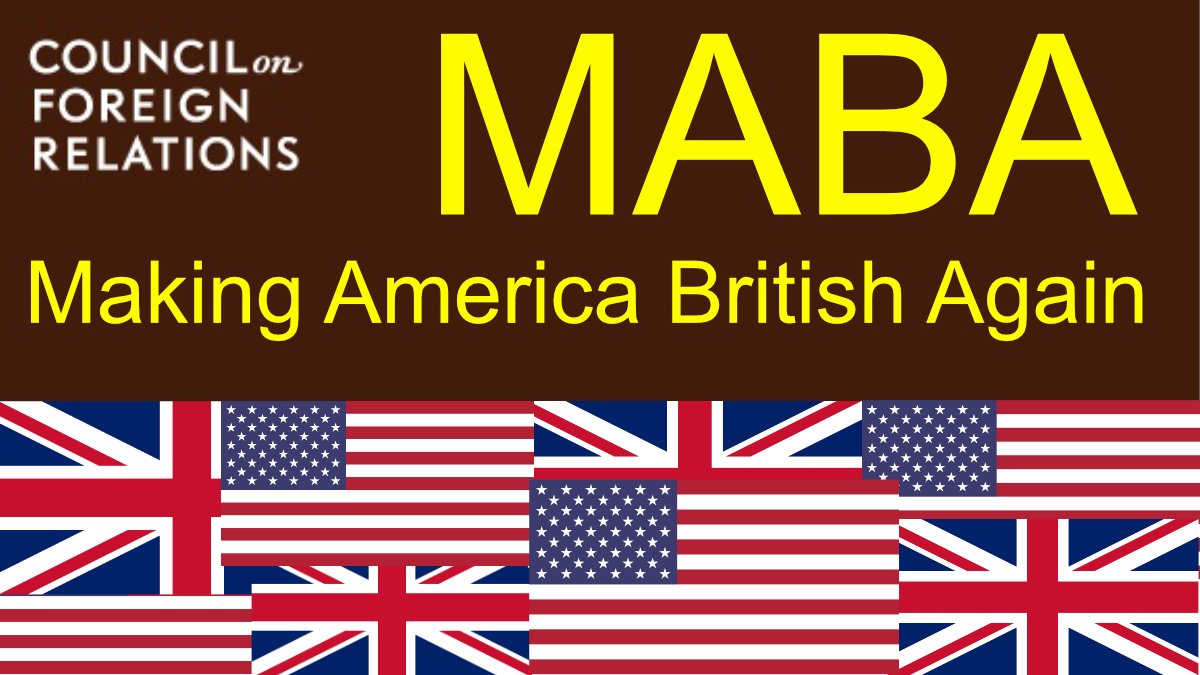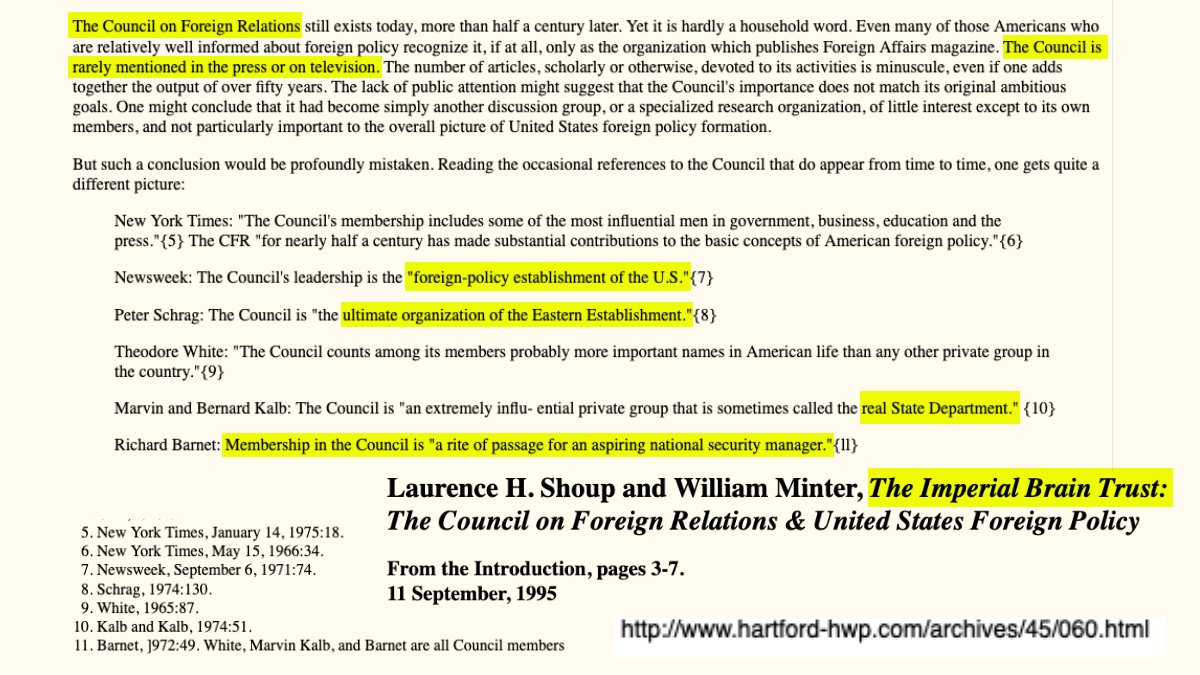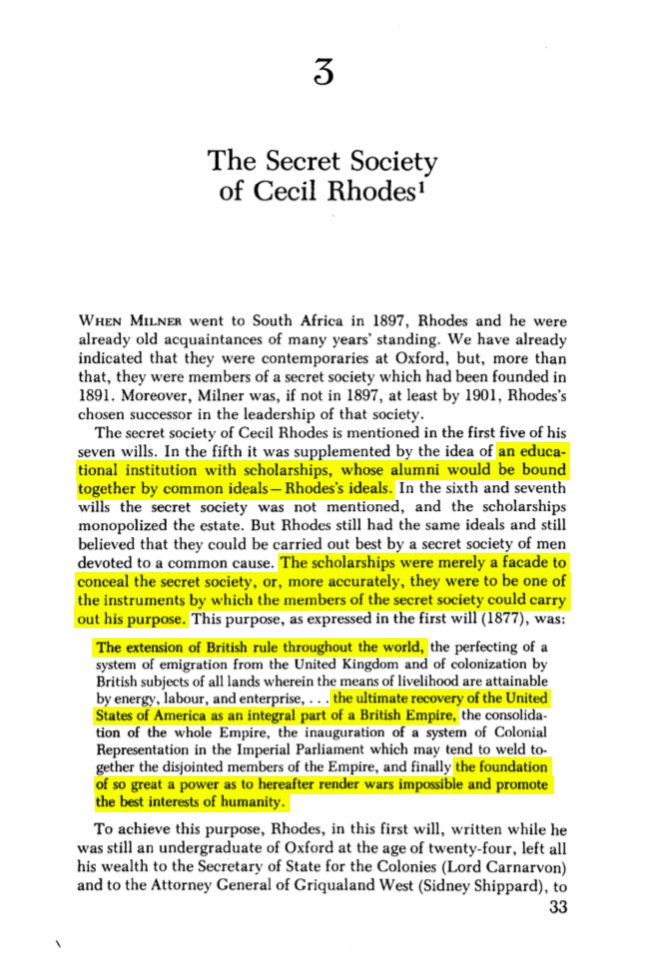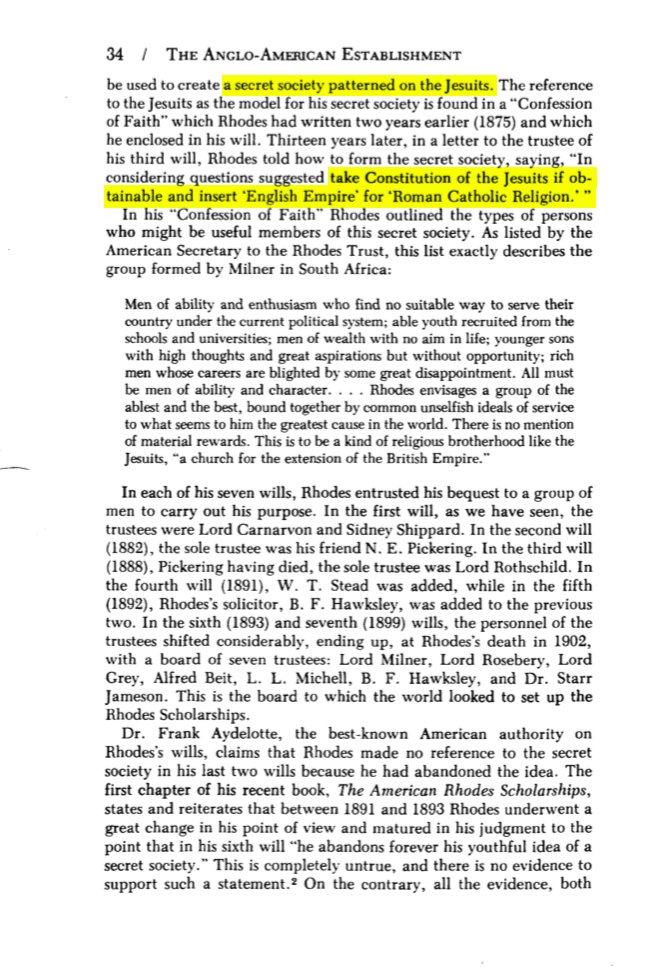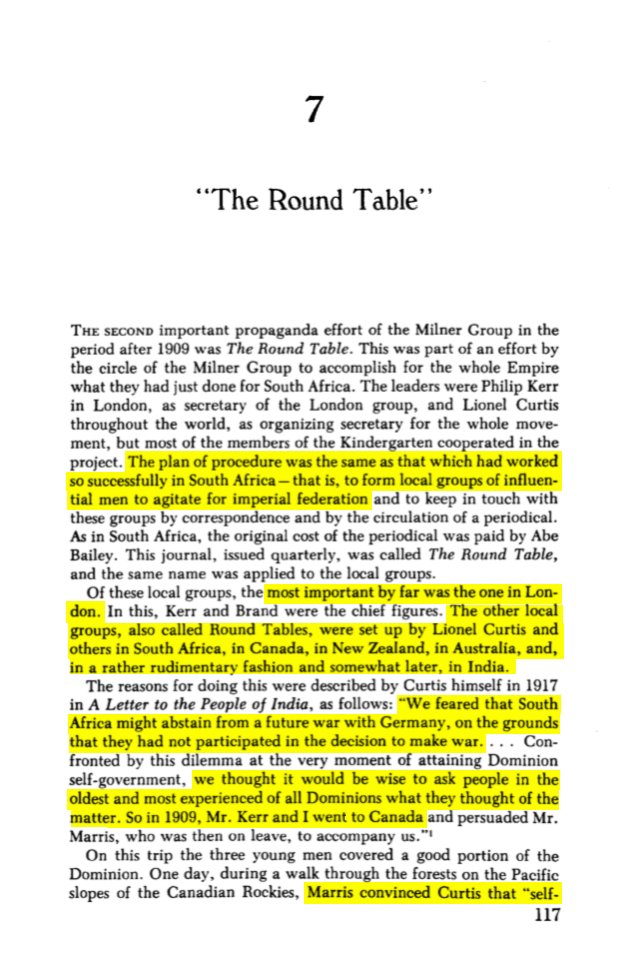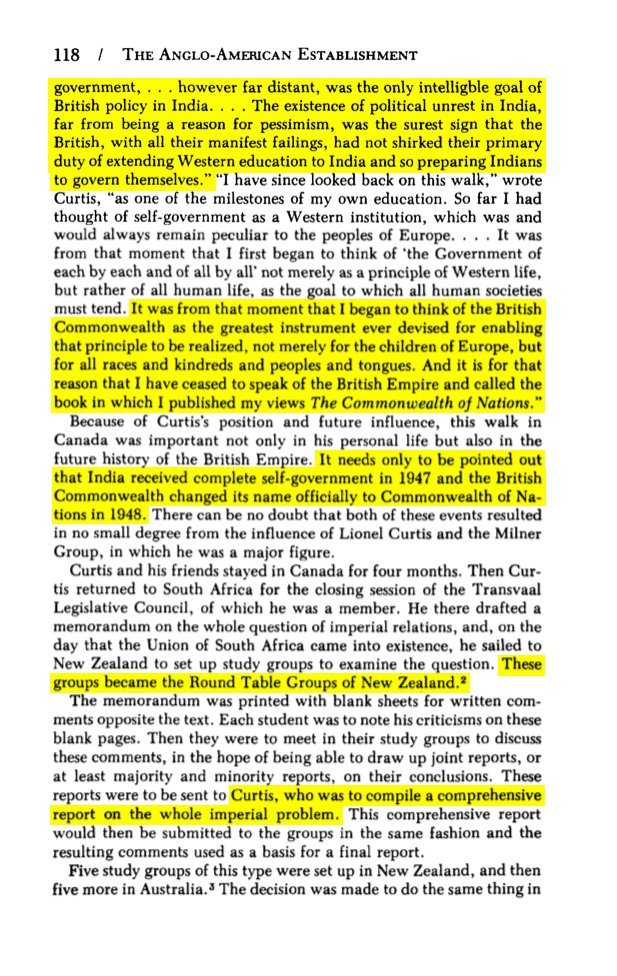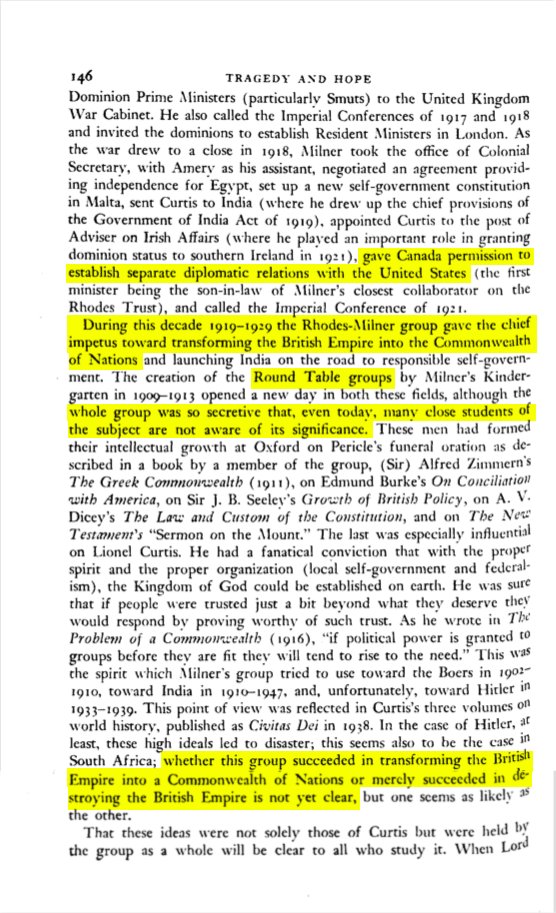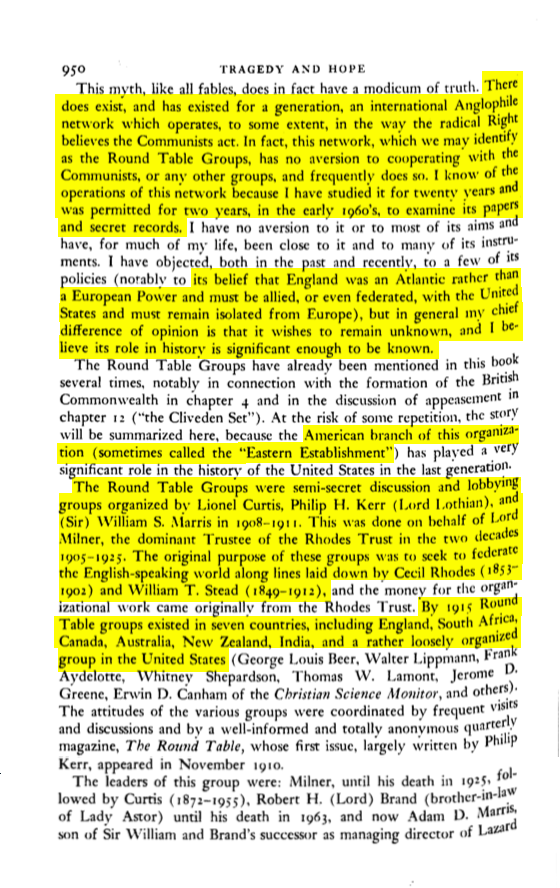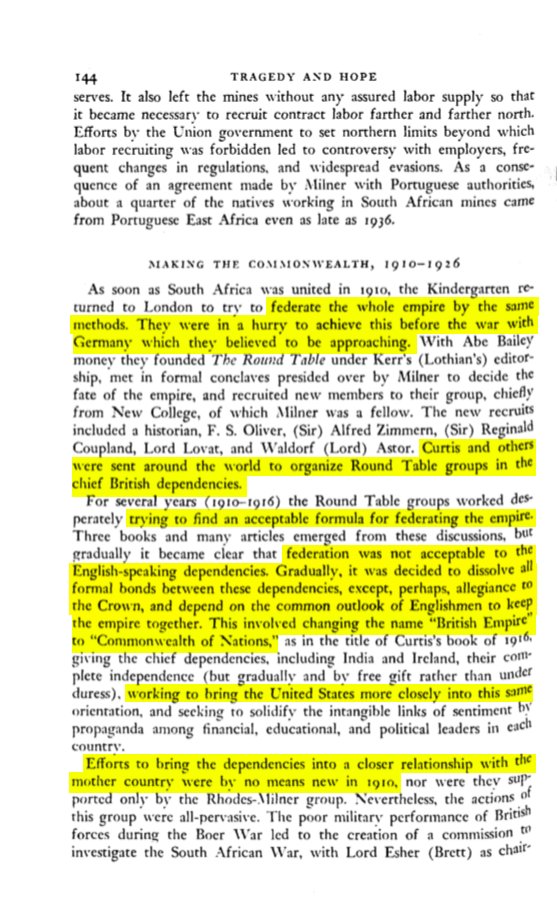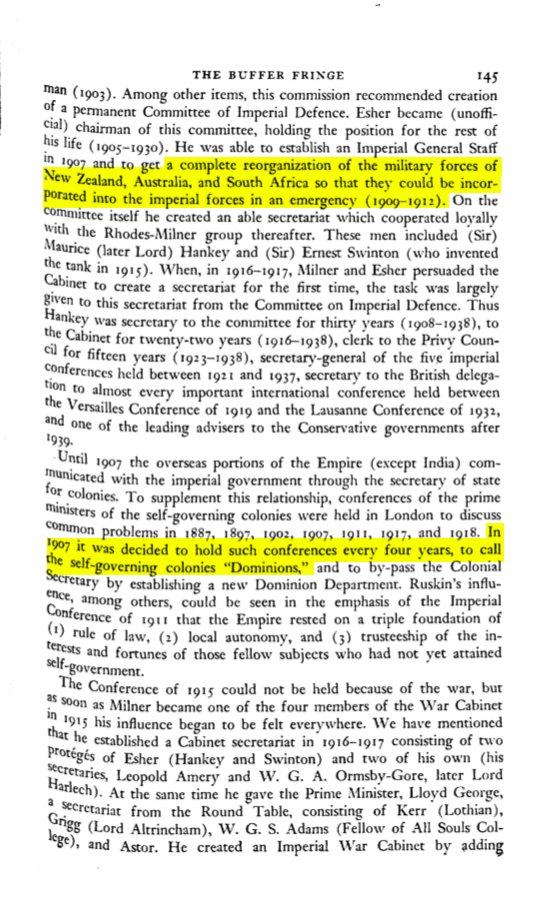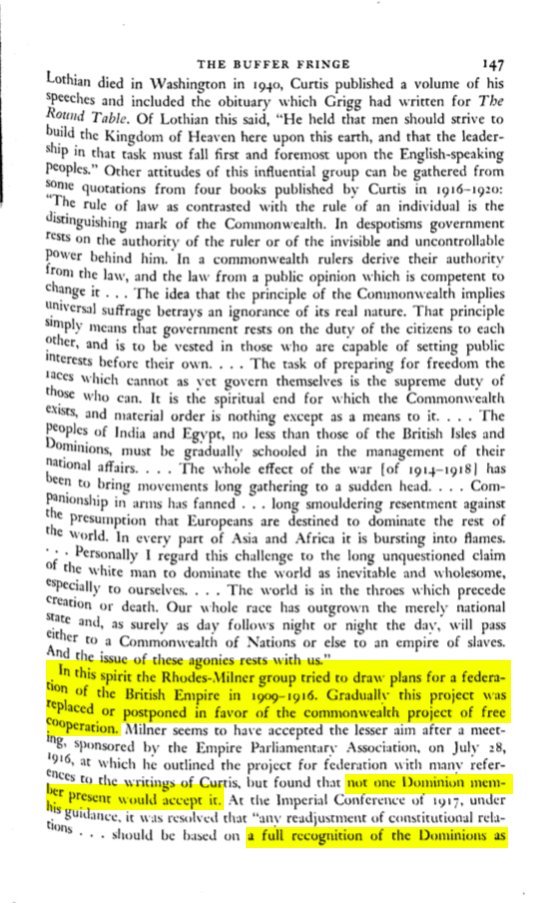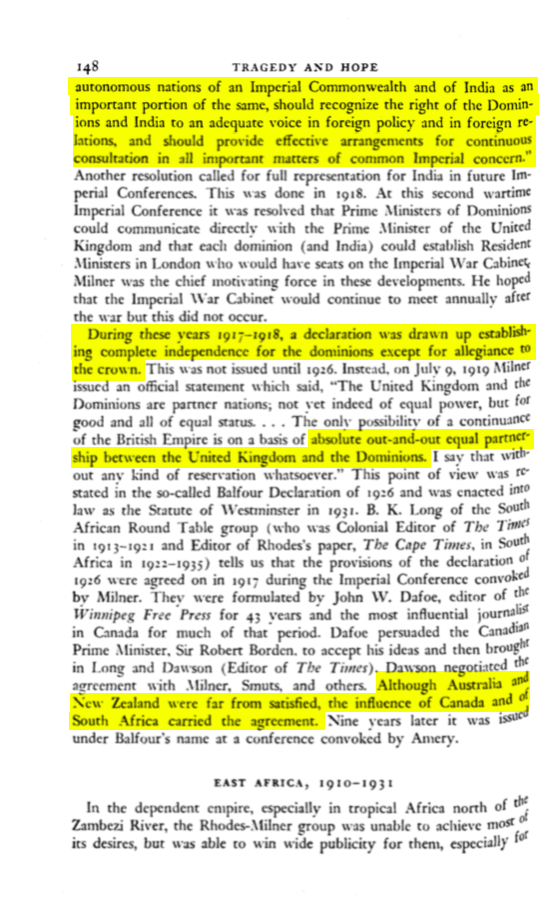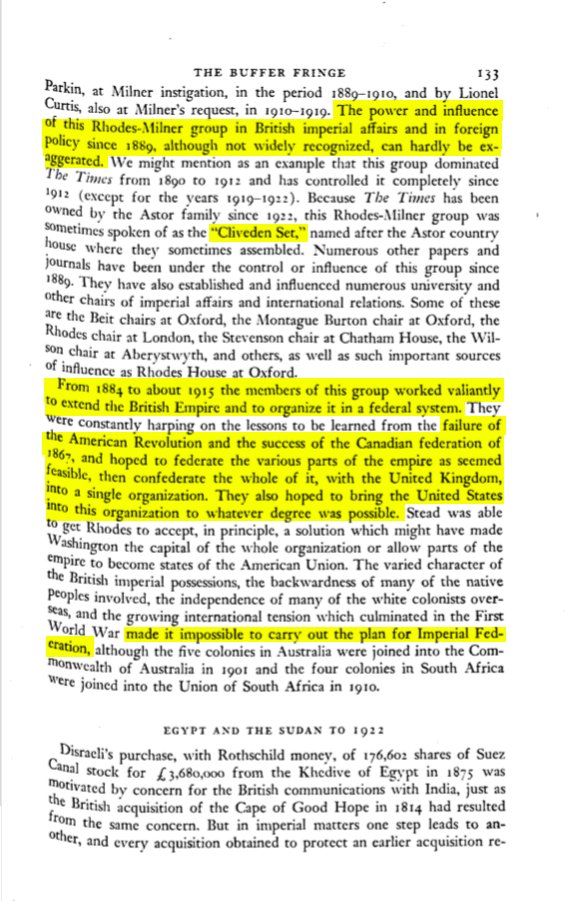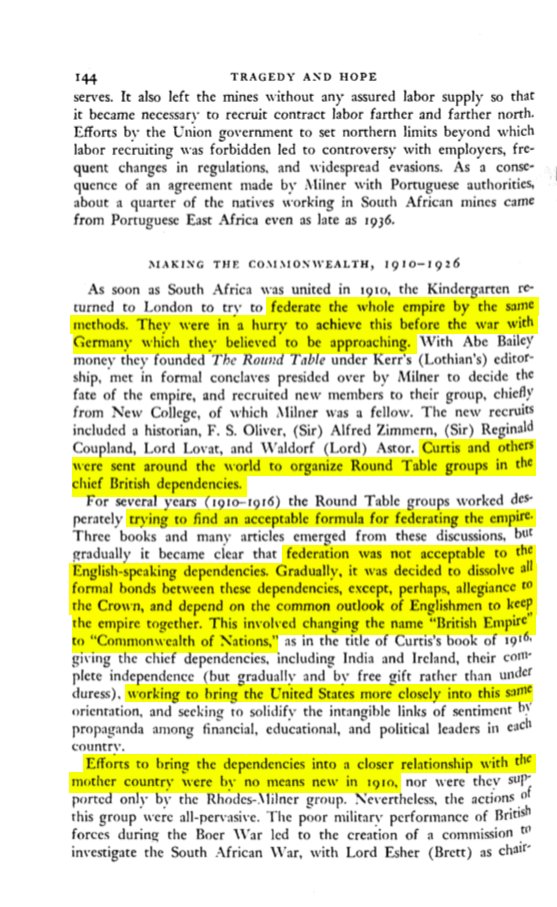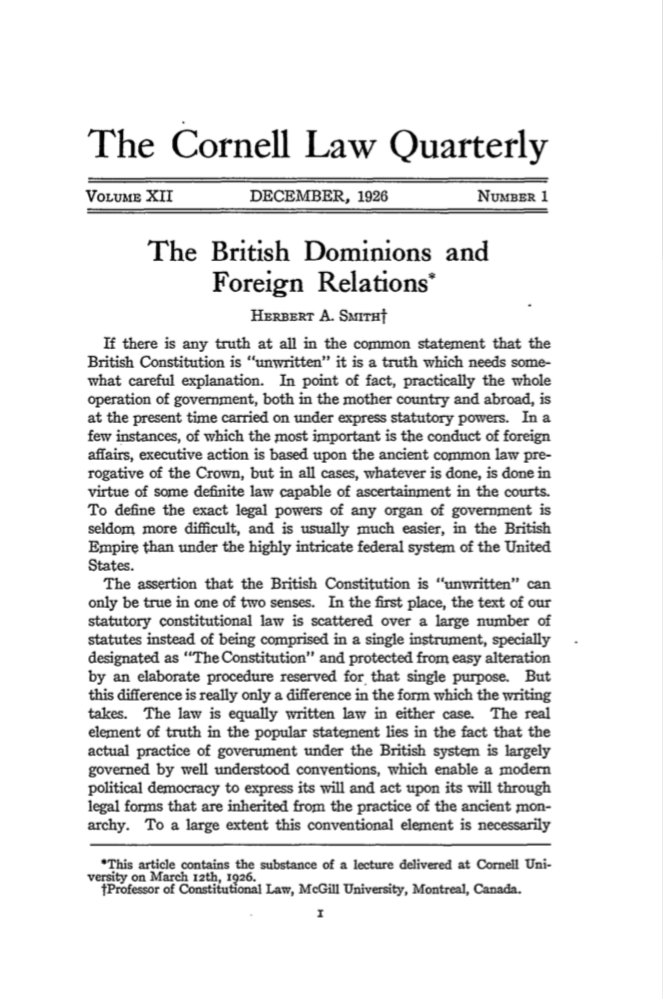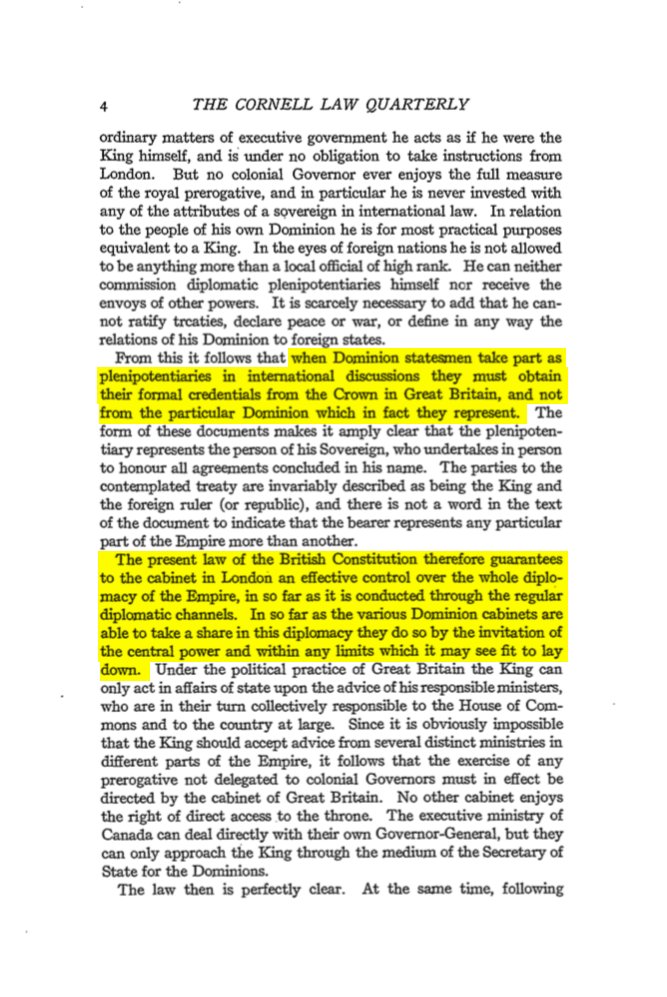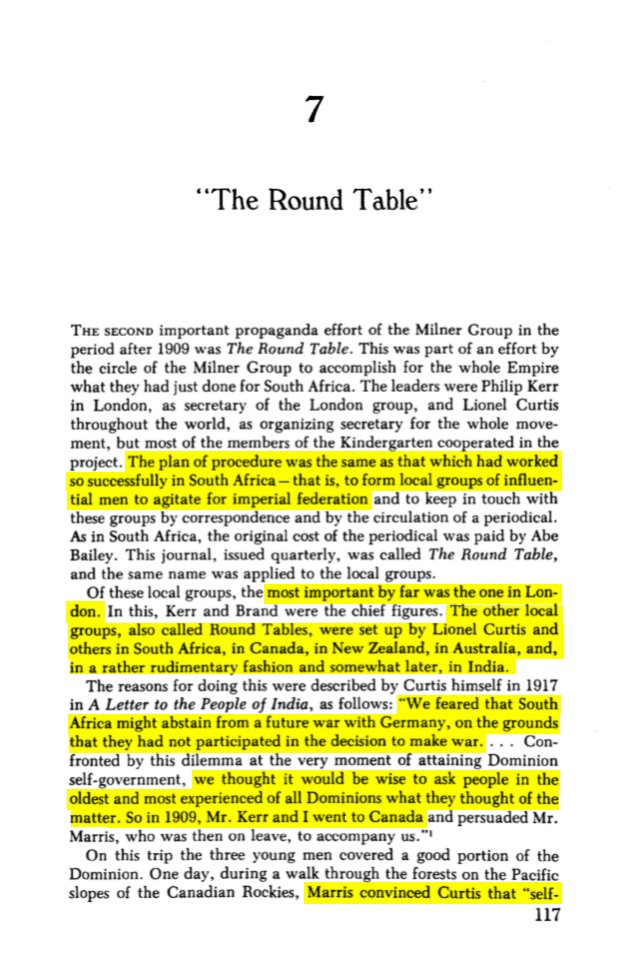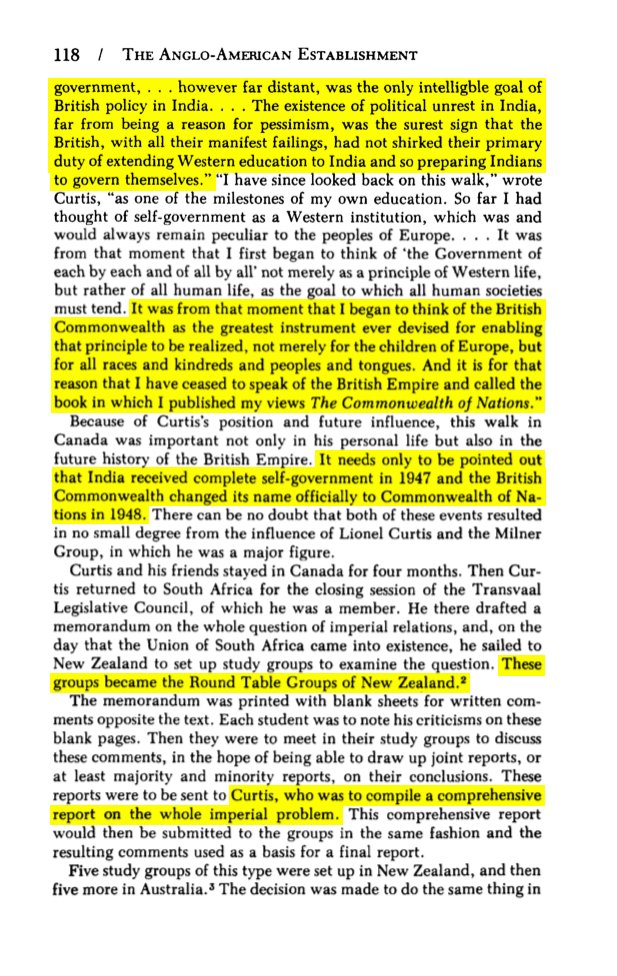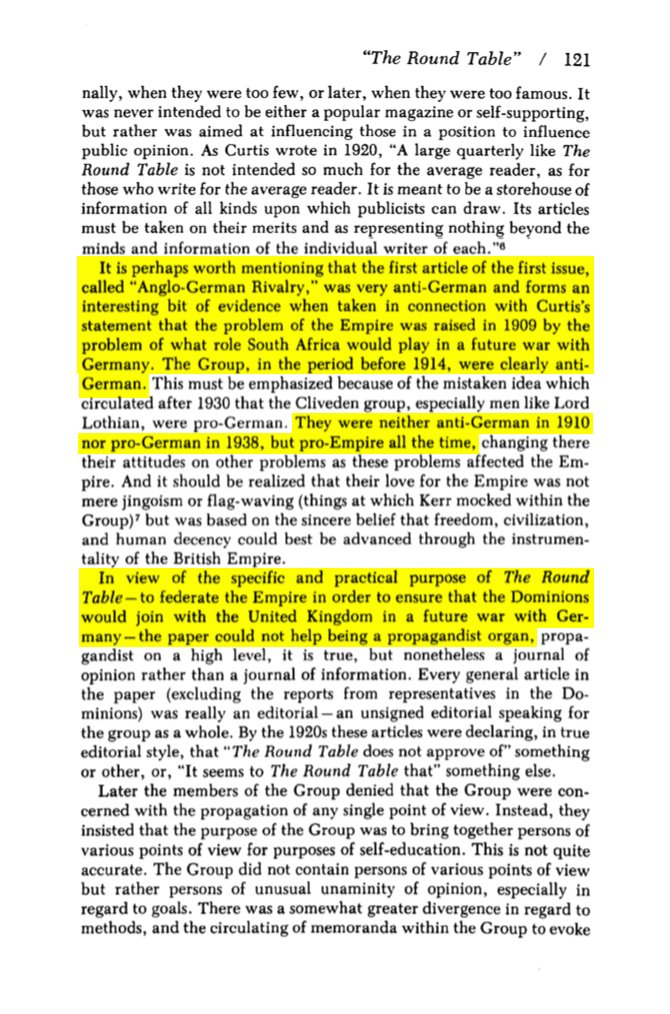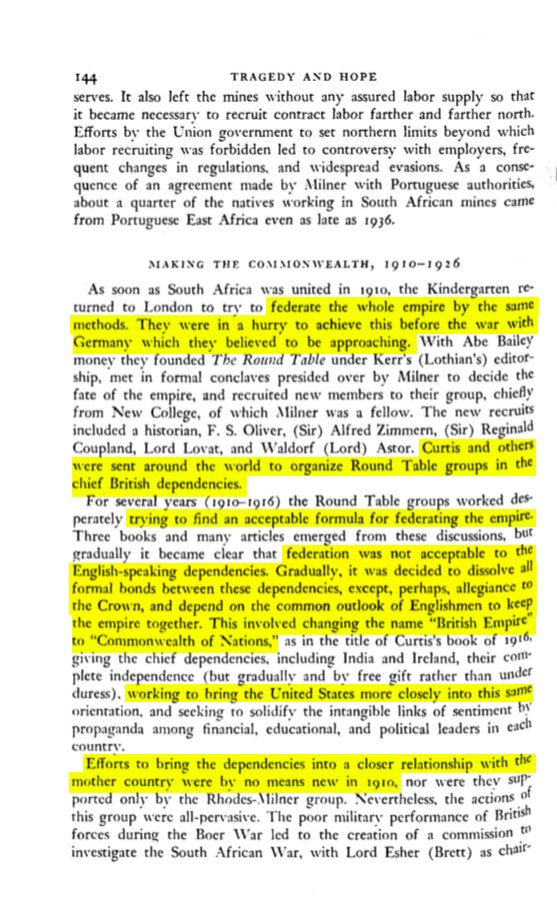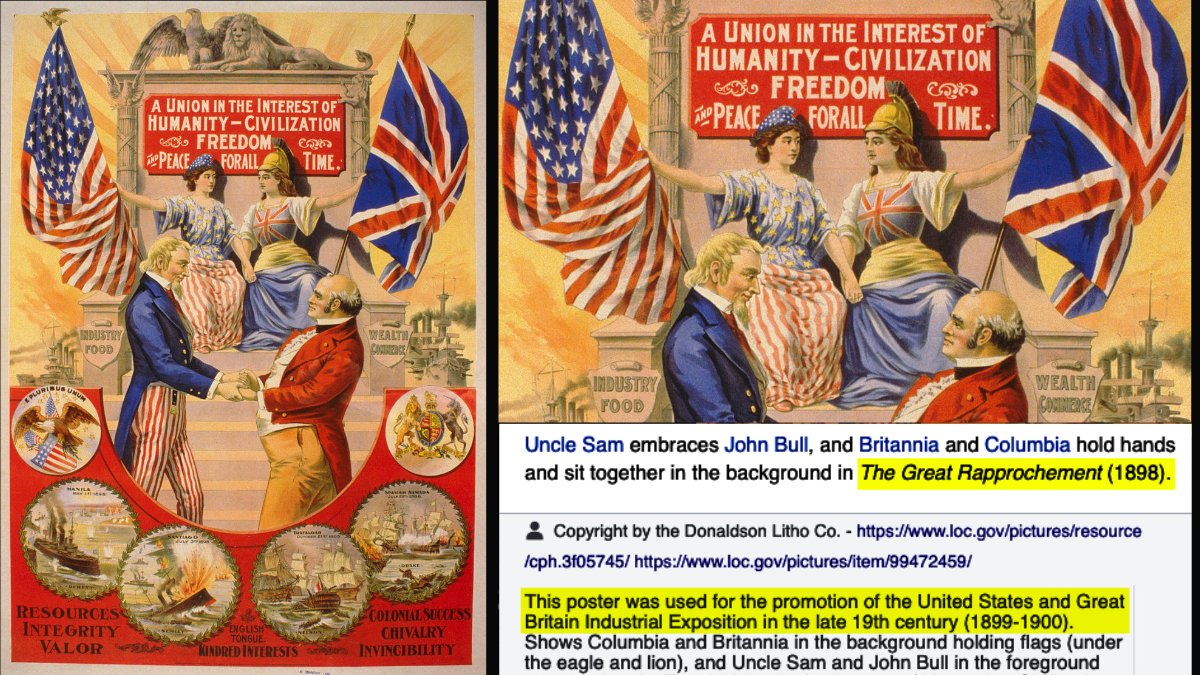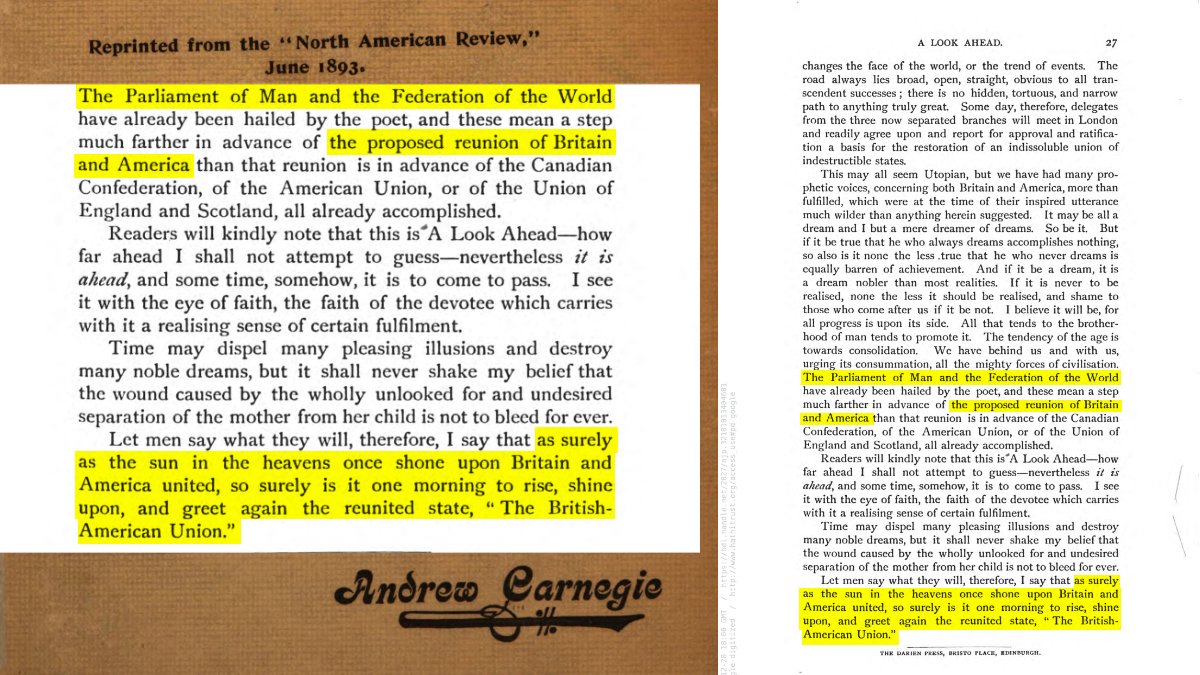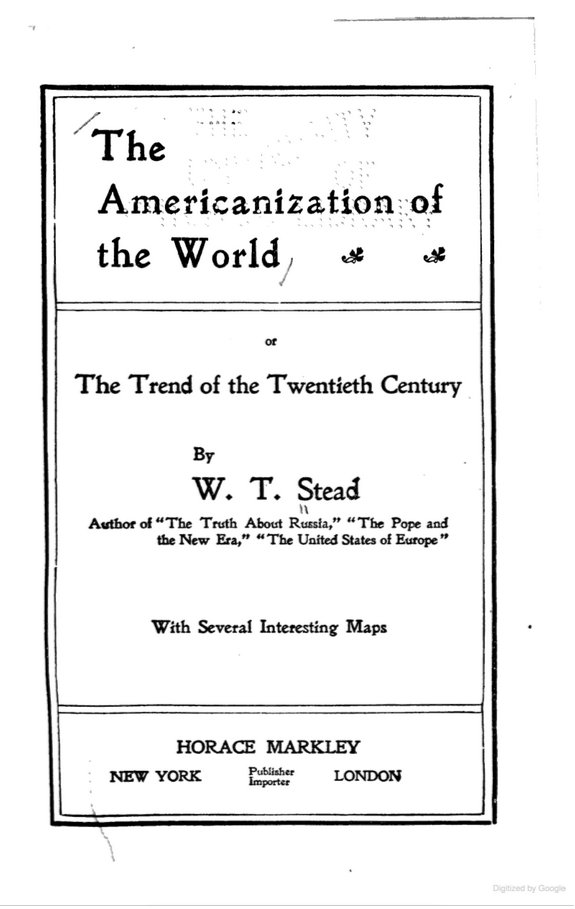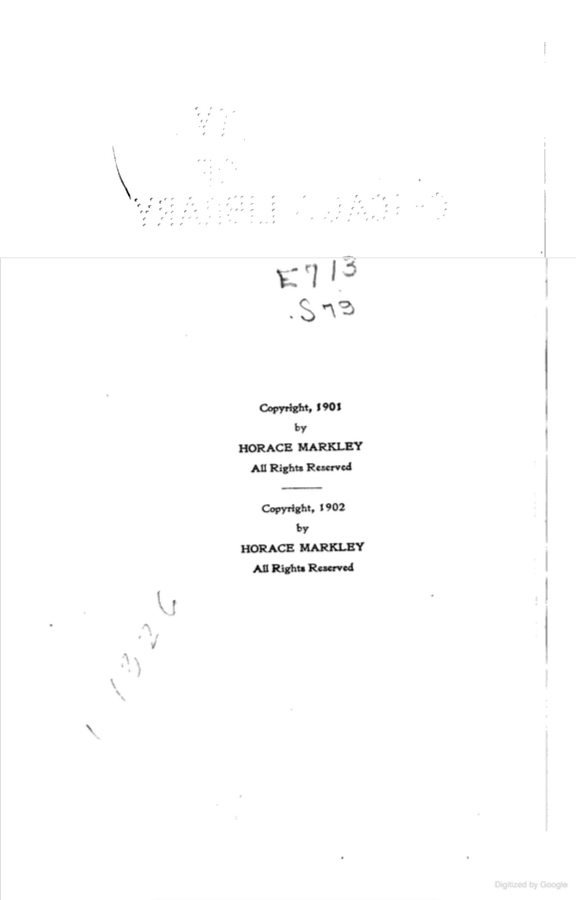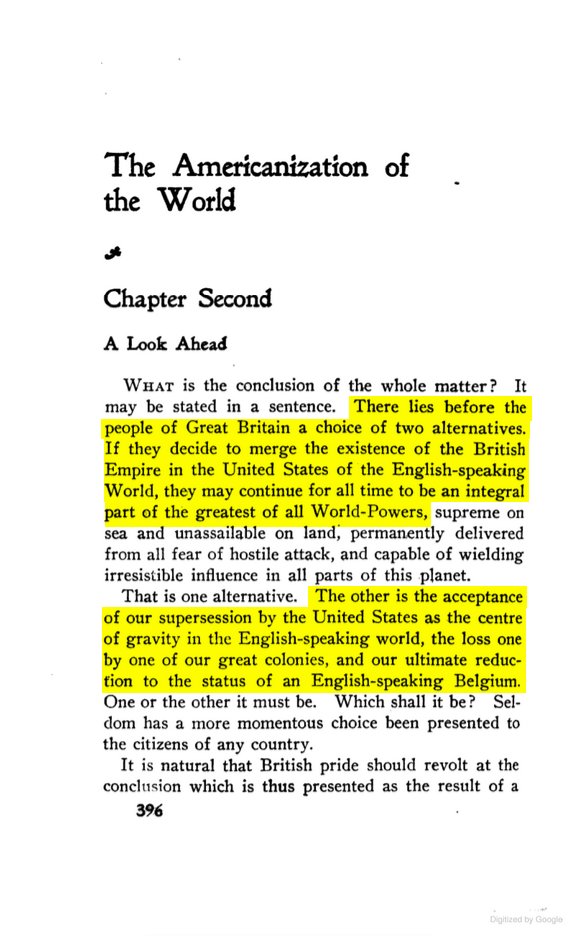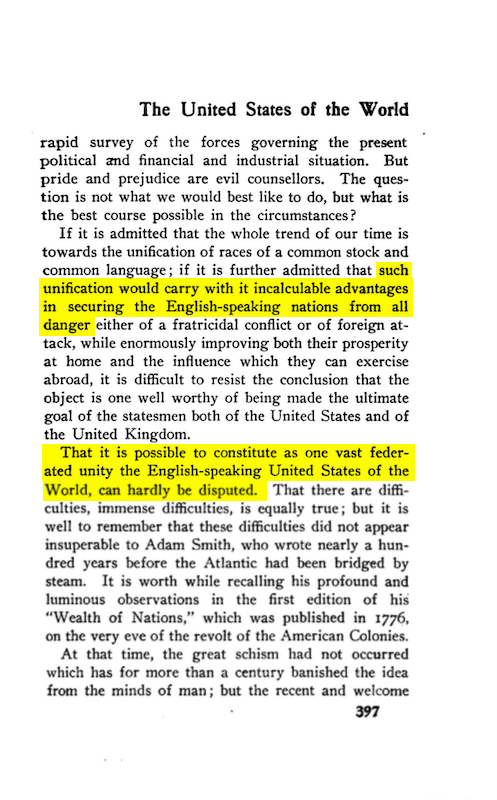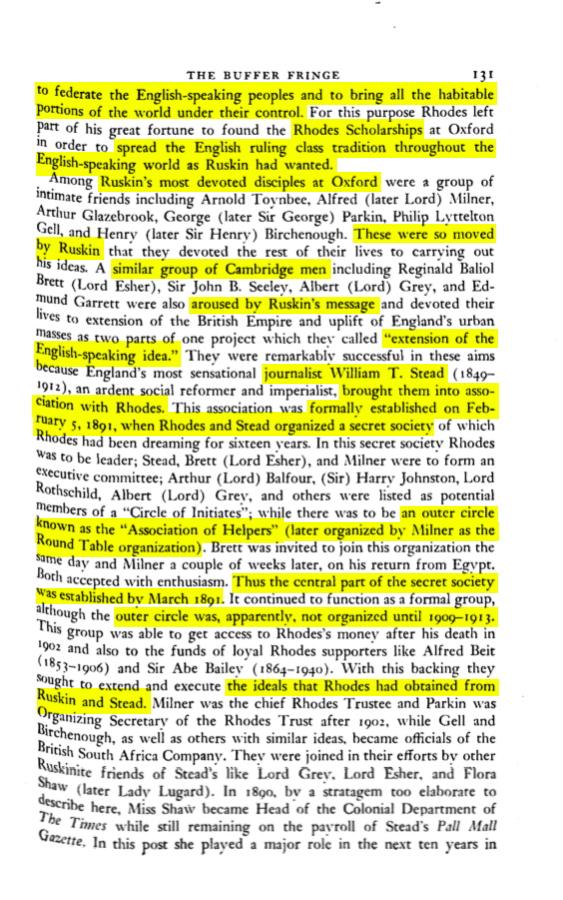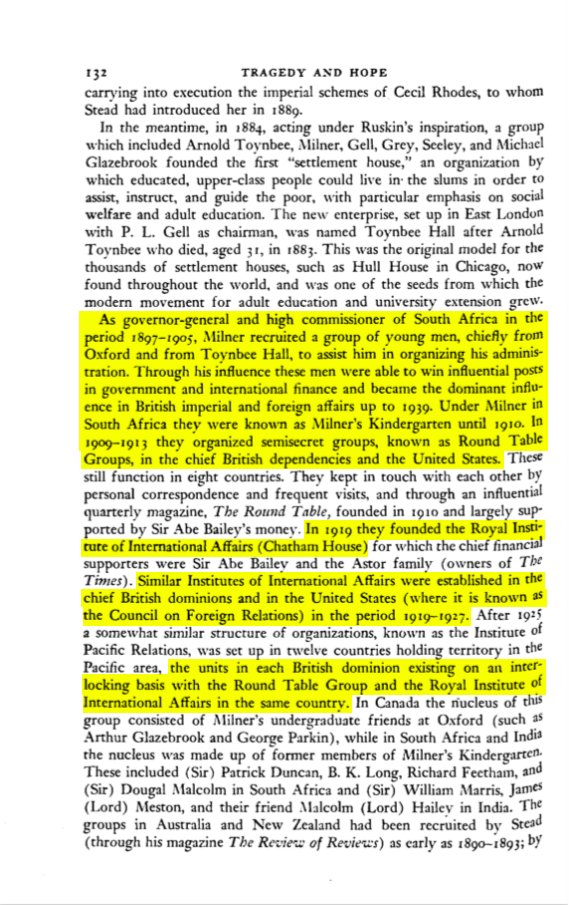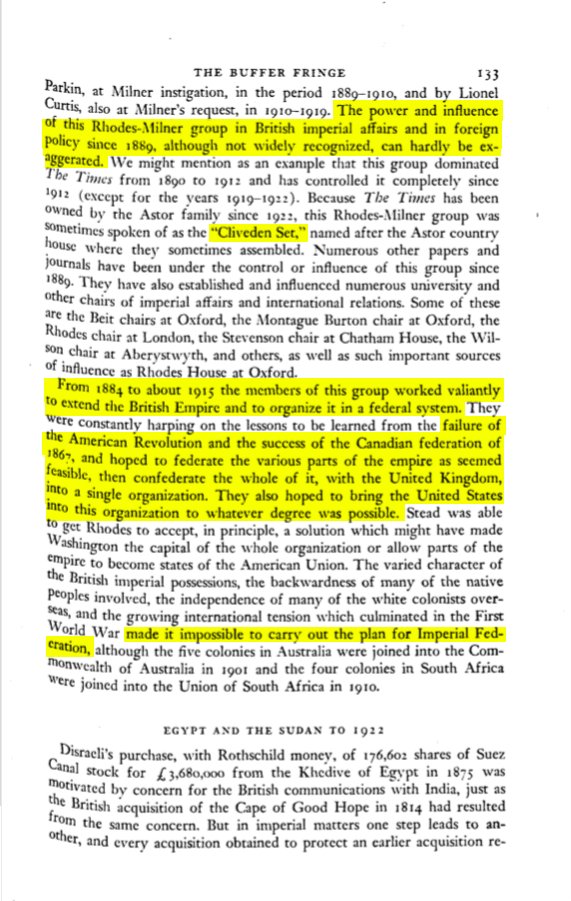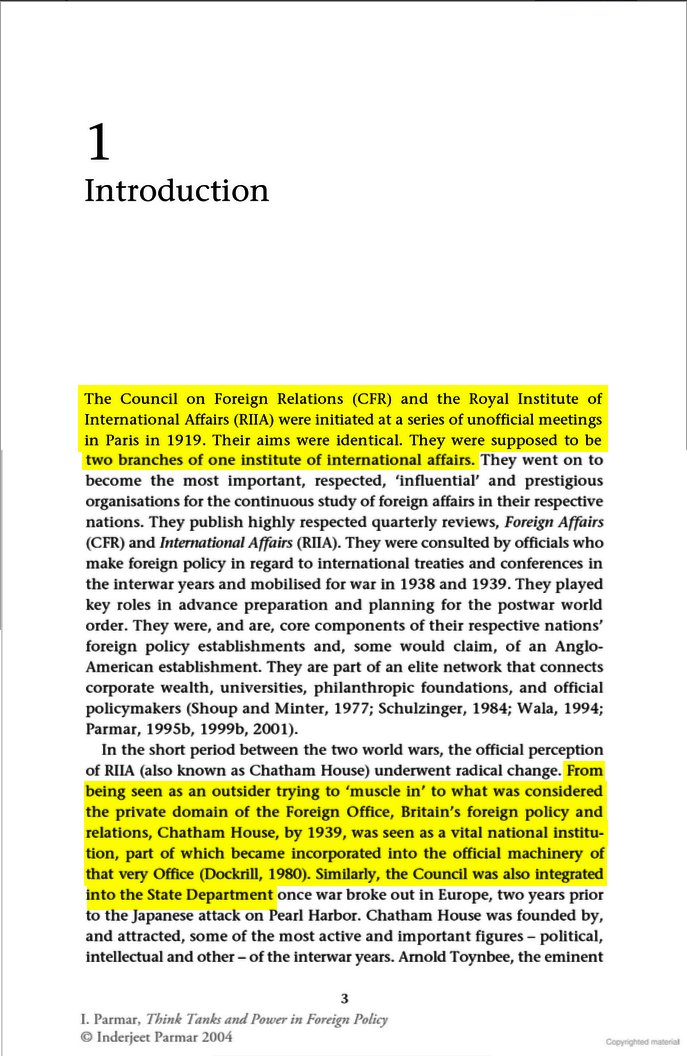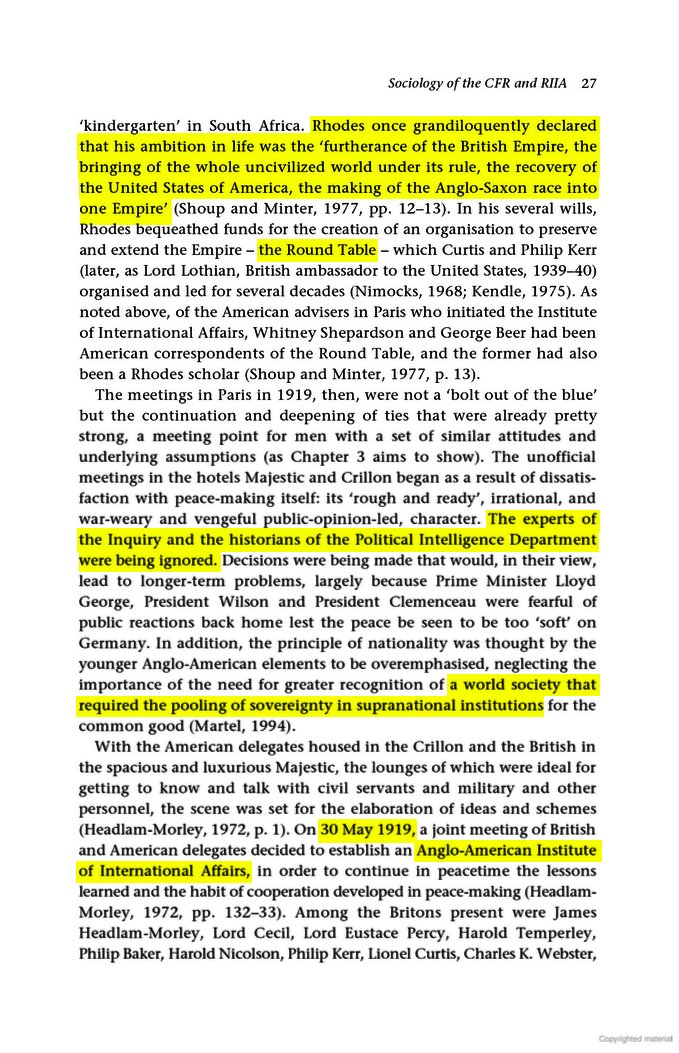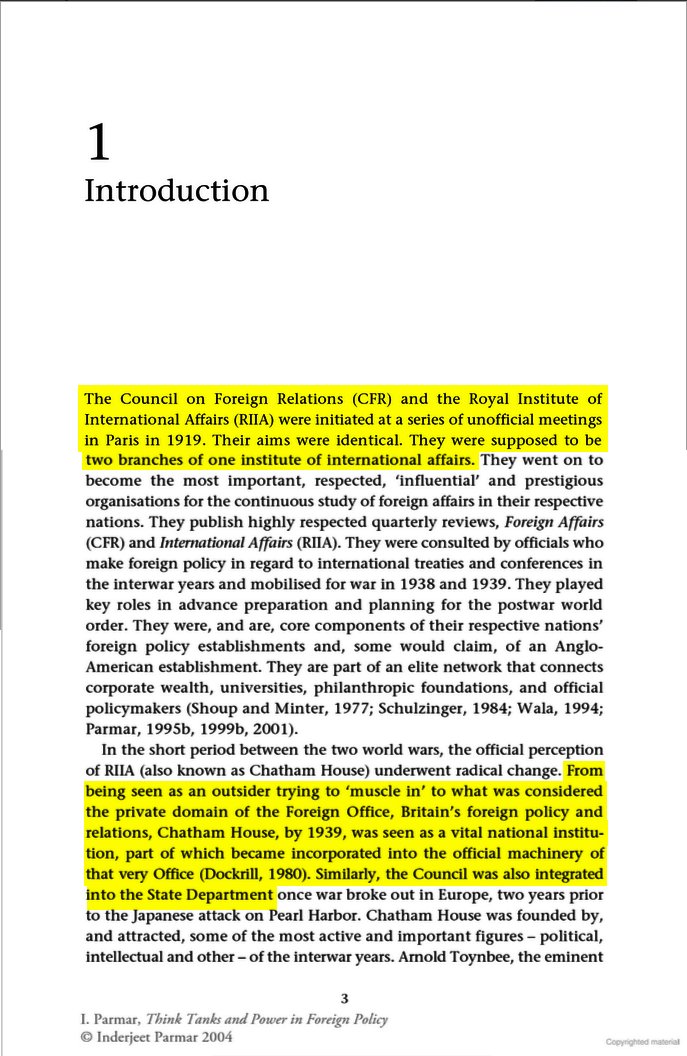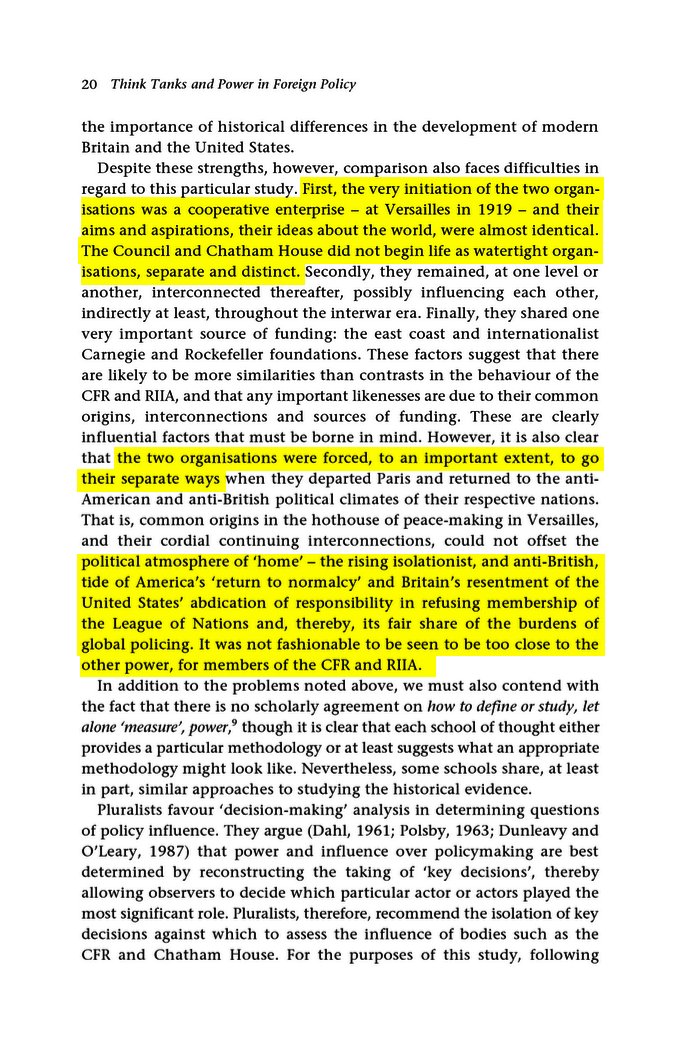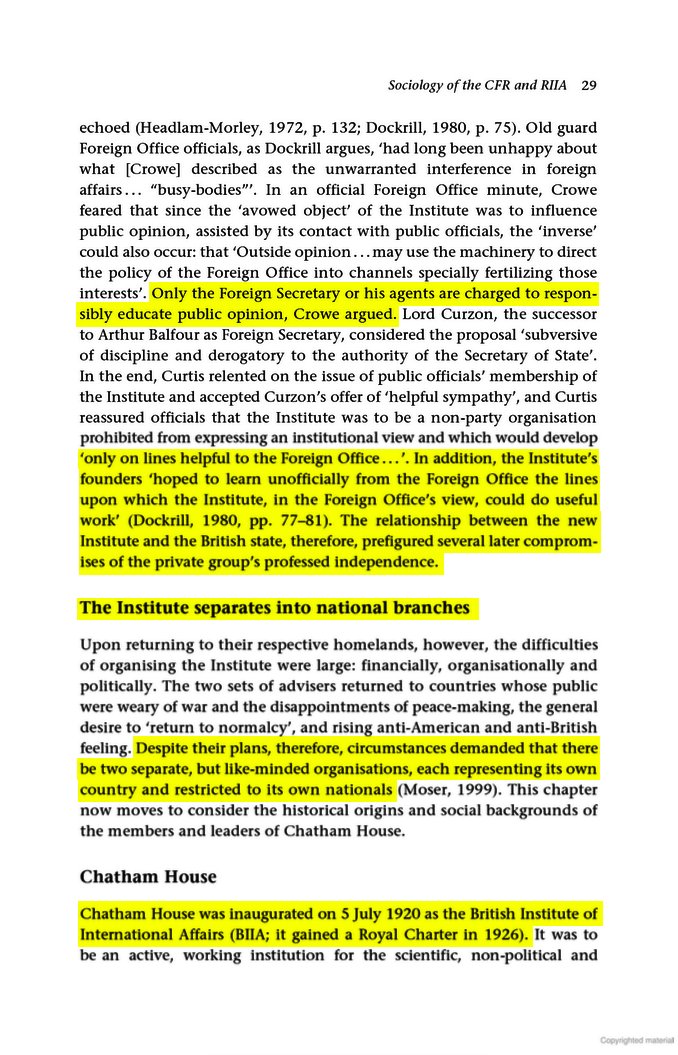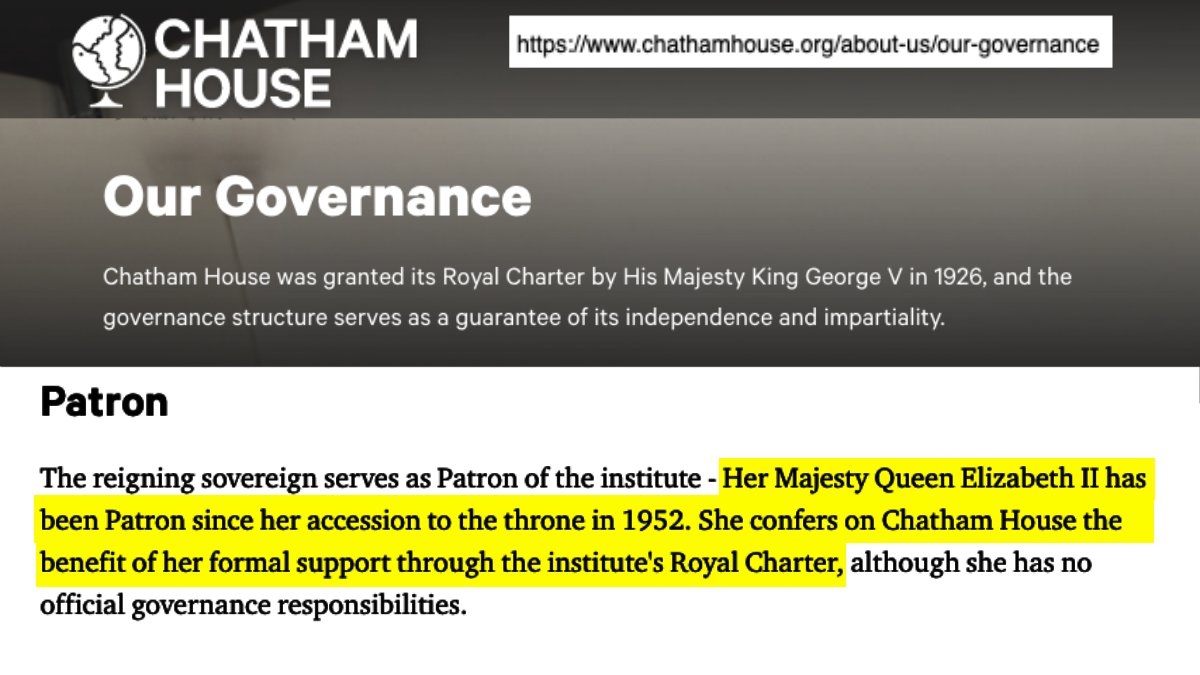1 of 37
THREAD
POP QUIZ: Who started all this talk of martial law and military coups?
ANSWER: FOREIGN POLICY magazine
Only 10 days after Trump took office, FP called for his removal, by force.
FP is the journal of the Council on Foreign Relations (CFR).
THREAD
POP QUIZ: Who started all this talk of martial law and military coups?
ANSWER: FOREIGN POLICY magazine
Only 10 days after Trump took office, FP called for his removal, by force.
FP is the journal of the Council on Foreign Relations (CFR).
2 of 37
The article was headlined, "3 Ways to Get Rid of President Trump Before 2020."
They were:
1. Impeachment
2. Invoking the 25th Amendment
3. Inciting a "military coup"
All this, just 10 days after Trump's inauguration.
https://foreignpolicy.com/2017/01/30/3-ways-to-get-rid-of-president-trump-before-2020-impeach-25th-amendment-coup/ https://twitter.com/RealRichardPoe/status/1337210775275003906
The article was headlined, "3 Ways to Get Rid of President Trump Before 2020."
They were:
1. Impeachment
2. Invoking the 25th Amendment
3. Inciting a "military coup"
All this, just 10 days after Trump's inauguration.
https://foreignpolicy.com/2017/01/30/3-ways-to-get-rid-of-president-trump-before-2020-impeach-25th-amendment-coup/ https://twitter.com/RealRichardPoe/status/1337210775275003906
3 of 37
So what is the Council on Foreign Relations?
And what's their beef against Trump?
https://www.jstor.org/stable/2702104?seq=1
So what is the Council on Foreign Relations?
And what's their beef against Trump?
https://www.jstor.org/stable/2702104?seq=1
4 of 37
It boils down to MAGA vs. MABA.
Trump wants to Make America Great Again.
The CFR wants to Make America BRITISH Again.
It's that simple.
It boils down to MAGA vs. MABA.
Trump wants to Make America Great Again.
The CFR wants to Make America BRITISH Again.
It's that simple.
5 of 37
The CFR has been called the "real State Department," as it effectively controls US foreign policy.
Many patriots know of the CFR as the nerve center of America's Deep State.
Few are aware, however, that the CFR is a front for British interests.
http://www.hartford-hwp.com/archives/45/060.html
The CFR has been called the "real State Department," as it effectively controls US foreign policy.
Many patriots know of the CFR as the nerve center of America's Deep State.
Few are aware, however, that the CFR is a front for British interests.
http://www.hartford-hwp.com/archives/45/060.html
6 of 37
The CFR arose from the British Round Table Movement.
British statesman Cecil Rhodes (1853 - 1902) bequeathed a fortune to promote "British rule throughout the world" and "the ultimate recovery of the United States of America as an integral part of the British Empire..."
The CFR arose from the British Round Table Movement.
British statesman Cecil Rhodes (1853 - 1902) bequeathed a fortune to promote "British rule throughout the world" and "the ultimate recovery of the United States of America as an integral part of the British Empire..."
7 of 37
After Rhodes's death, Alfred Milner took over his movement.
Beginning in 1909, Milner set up secretive "Round Table" groups in English-speaking countries, to propagandize for a worldwide, English-speaking federation, in accordance with Rhodes's vision.
After Rhodes's death, Alfred Milner took over his movement.
Beginning in 1909, Milner set up secretive "Round Table" groups in English-speaking countries, to propagandize for a worldwide, English-speaking federation, in accordance with Rhodes's vision.
8 of 37
Full federation proved to be a hard sell.
Britain's English-speaking colonies wanted independence.
So the Round Tablers proposed a compromise.
They offered "Dominion" status or partial independence.
Full federation proved to be a hard sell.
Britain's English-speaking colonies wanted independence.
So the Round Tablers proposed a compromise.
They offered "Dominion" status or partial independence.
9 of 37
Canada was to be the model.
It had gained Dominion status in 1867.
This meant Canada governed itself internally, while Britain ran its foreign policy.
Canadians remained subjects of the British Crown.
The same deal was now offered to other English-speaking colonies.
Canada was to be the model.
It had gained Dominion status in 1867.
This meant Canada governed itself internally, while Britain ran its foreign policy.
Canadians remained subjects of the British Crown.
The same deal was now offered to other English-speaking colonies.
10 of 37
The Round Tablers had to work quickly.
War with Germany was expected.
Britain needed to mollify the Dominions with self-rule, so they'd agree to provide troops in the coming war.
Australia became a Dominion in 1901; New Zealand in 1907; and South Africa in 1910.
The Round Tablers had to work quickly.
War with Germany was expected.
Britain needed to mollify the Dominions with self-rule, so they'd agree to provide troops in the coming war.
Australia became a Dominion in 1901; New Zealand in 1907; and South Africa in 1910.
11 of 37
The United States presented a special challenge.
We had been independent since 1776.
Moreover, our relations with Britain had been stormy, marred by the War of 1812, border disputes with Canada, and British meddling in the Civil War.
The United States presented a special challenge.
We had been independent since 1776.
Moreover, our relations with Britain had been stormy, marred by the War of 1812, border disputes with Canada, and British meddling in the Civil War.
12 of 37
Beginning in the 1890s, the British waged a public relations blitz called "The Great Rapprochement," promoting Anglo-American unity.
https://en.wikipedia.org/wiki/The_Great_Rapprochement
Beginning in the 1890s, the British waged a public relations blitz called "The Great Rapprochement," promoting Anglo-American unity.
https://en.wikipedia.org/wiki/The_Great_Rapprochement
13 of 37
Scottish-born steel magnate Andrew Carnegie called openly for a "British-American Union," in 1893.
He expressly advocated America's return to the British Empire.
Scottish-born steel magnate Andrew Carnegie called openly for a "British-American Union," in 1893.
He expressly advocated America's return to the British Empire.
14 of 37
British journalist W.T. Stead argued in 1901 for an "English-speaking United States of the World."
SOURCE: The Americanization of the World (New York, Horace Markley: 1901)
https://www.google.com/books/edition/The_Americanization_of_the_World/bypEAQAAMAAJ?hl=en&gbpv=1&dq=%22continue+for+all+time+to+be+an+integral+part+of+the+greatest+of+all+World-Powers,+supreme+on+sea+and+unassailable+on+land,+permanently+delivered+from+all+fear+of+hostile+attack,+and+capable+of+wielding+irresistible+influence+in+all+parts+of+this+planet.%22&pg=PA396&printsec=frontcover
British journalist W.T. Stead argued in 1901 for an "English-speaking United States of the World."
SOURCE: The Americanization of the World (New York, Horace Markley: 1901)
https://www.google.com/books/edition/The_Americanization_of_the_World/bypEAQAAMAAJ?hl=en&gbpv=1&dq=%22continue+for+all+time+to+be+an+integral+part+of+the+greatest+of+all+World-Powers,+supreme+on+sea+and+unassailable+on+land,+permanently+delivered+from+all+fear+of+hostile+attack,+and+capable+of+wielding+irresistible+influence+in+all+parts+of+this+planet.%22&pg=PA396&printsec=frontcover
15 of 37
From the British standpoint, the Great Rapprochement was a flop.
When Britain declared war on Germany in 1914, troops poured in from every corner of the Empire.
But not from America.
The US entered the war only in April 1917, after 2 1/2 years of British lobbying.
From the British standpoint, the Great Rapprochement was a flop.
When Britain declared war on Germany in 1914, troops poured in from every corner of the Empire.
But not from America.
The US entered the war only in April 1917, after 2 1/2 years of British lobbying.
16 of 37
To the British, the delay was intolerable.
It proved that Americans could not be trusted to make important decisions.
The Milner Group sought a "Canadian" solution — manipulating the US into a Dominion-like arrangement, with Britain controlling our foreign policy.
To the British, the delay was intolerable.
It proved that Americans could not be trusted to make important decisions.
The Milner Group sought a "Canadian" solution — manipulating the US into a Dominion-like arrangement, with Britain controlling our foreign policy.
17 of 37
It had to be done quietly, through back channels.
During the 1919 Paris peace talks, Milner Group operatives worked with a hand-picked team of US Anglophiles, many of them Round Table members, to devise formal mechanisms for coordinating US and British foreign policy.
It had to be done quietly, through back channels.
During the 1919 Paris peace talks, Milner Group operatives worked with a hand-picked team of US Anglophiles, many of them Round Table members, to devise formal mechanisms for coordinating US and British foreign policy.
18 of 37
On May 30, 1919, the Anglo-American Institute of International Affairs (AAIIA) was formed, with branches in NY and London.
Anti-British feeling surged in America, as many blamed Britain for dragging us into war.
The London and NY branches decided to separate in 1920.
On May 30, 1919, the Anglo-American Institute of International Affairs (AAIIA) was formed, with branches in NY and London.
Anti-British feeling surged in America, as many blamed Britain for dragging us into war.
The London and NY branches decided to separate in 1920.
19 of 37
The London branch was renamed the British institute of International Affairs (BIAA) in 1920.
In 1926, the BIAA received a royal charter, becoming the Royal Institute of International Affairs (RIIA), commonly known as Chatham House.
https://www.chathamhouse.org/about-us/our-governance
The London branch was renamed the British institute of International Affairs (BIAA) in 1920.
In 1926, the BIAA received a royal charter, becoming the Royal Institute of International Affairs (RIIA), commonly known as Chatham House.
https://www.chathamhouse.org/about-us/our-governance
20 of 37
On its website, the CFR claims to be an "independent, nonpartisan... think tank" whose goal is "to start a conversation in this country about the need for Americans to better understand the world."
Nice words, but a little vague. https://www.cfr.org/about
On its website, the CFR claims to be an "independent, nonpartisan... think tank" whose goal is "to start a conversation in this country about the need for Americans to better understand the world."
Nice words, but a little vague. https://www.cfr.org/about
21 of 37
In fact, the CFR pushes two agendas:
1. Anglo-American unity
2. Globalism
These are the same goals set forth in Rhodes's will, which called for an Anglo-American union which would "hereafter render wars impossible..."
https://link.springer.com/chapter/10.1057/9780230000780_5
In fact, the CFR pushes two agendas:
1. Anglo-American unity
2. Globalism
These are the same goals set forth in Rhodes's will, which called for an Anglo-American union which would "hereafter render wars impossible..."
https://link.springer.com/chapter/10.1057/9780230000780_5
22 of 37
Plainly, the CFR is a front for British interests.
But that doesn't explain their hatred of @realDonaldTrump.
What has Trump done to threaten British policy?
And why is the threat deemed so dire that the CFR would propose a "military coup"?
Plainly, the CFR is a front for British interests.
But that doesn't explain their hatred of @realDonaldTrump.
What has Trump done to threaten British policy?
And why is the threat deemed so dire that the CFR would propose a "military coup"?
23 of 37
I believe the answer can be found in the original writings of the Rhodes group.
In THE AMERICANIZATION OF THE WORLD (1901), W.T. Stead — Rhodes's close collaborator — argued that Britain had only two choices.
Britain must MERGE with America or be REPLACED by her.
I believe the answer can be found in the original writings of the Rhodes group.
In THE AMERICANIZATION OF THE WORLD (1901), W.T. Stead — Rhodes's close collaborator — argued that Britain had only two choices.
Britain must MERGE with America or be REPLACED by her.
24 of 37
By the 1890s, British leaders already knew that policing their Empire had become too costly.
Granting self-rule to the Dominions (and thus making them responsible for their own defense) partly alleviated the cost.
But military spending was still too high.
By the 1890s, British leaders already knew that policing their Empire had become too costly.
Granting self-rule to the Dominions (and thus making them responsible for their own defense) partly alleviated the cost.
But military spending was still too high.
25 of 37
In 1906, British banker Lord Avebury complained that the U.S. was getting rich at Britain's expense.
Britain paid 60 percent more on its military, to keep the world safe for business, while the U.S. profited from the Pax Britannica.
https://www.google.com/books/edition/The_Twentieth_Century/eexXAAAAIAAJ?q=The+Nineteenth+Century+and+After+Vol.+LIX&gbpv=1
In 1906, British banker Lord Avebury complained that the U.S. was getting rich at Britain's expense.
Britain paid 60 percent more on its military, to keep the world safe for business, while the U.S. profited from the Pax Britannica.
https://www.google.com/books/edition/The_Twentieth_Century/eexXAAAAIAAJ?q=The+Nineteenth+Century+and+After+Vol.+LIX&gbpv=1
26 of 37
Today, the situation is reversed in Britain's favor.
British military spending is now a fraction of ours.
While America polices the world, British investors get rich from the Pax Americana.
Coincidence? Or planning?
Today, the situation is reversed in Britain's favor.
British military spending is now a fraction of ours.
While America polices the world, British investors get rich from the Pax Americana.
Coincidence? Or planning?
27 of 37
British elites were not content with transferring the cost of empire to America.
They still wanted the right to control imperial policy, no matter who was footing the bill.
With the help of the CFR, they have been remarkably successful at attaining that goal.
British elites were not content with transferring the cost of empire to America.
They still wanted the right to control imperial policy, no matter who was footing the bill.
With the help of the CFR, they have been remarkably successful at attaining that goal.
28 of 37
The "New Imperialist" movement in Britain seeks to rebuild the UK's global influence, on the back of the US military.
British historian Andrew Roberts announced this new movement in a January 8, 2005 article in the Daily Mail.
https://twitter.com/RealRichardPoe/status/1322672951729246209
The "New Imperialist" movement in Britain seeks to rebuild the UK's global influence, on the back of the US military.
British historian Andrew Roberts announced this new movement in a January 8, 2005 article in the Daily Mail.
https://twitter.com/RealRichardPoe/status/1322672951729246209
29 of 37
Calling for the "recolonisation of Africa," Roberts boasted that most African dictatorhips would collapse at the "mere arrival on the horizon of an aircraft carrier from an English-speaking country..."
DOWNLOAD PDF
http://ligali.org/pdf/Daily%20Mail%20-%20Recolonise%20Africa%20Article.pdf
Calling for the "recolonisation of Africa," Roberts boasted that most African dictatorhips would collapse at the "mere arrival on the horizon of an aircraft carrier from an English-speaking country..."
DOWNLOAD PDF
http://ligali.org/pdf/Daily%20Mail%20-%20Recolonise%20Africa%20Article.pdf
30 of 37
Roberts did not say WHICH "English-speaking country" would provide the aircraft carriers, but I'll give you three guesses.
Roberts did not say WHICH "English-speaking country" would provide the aircraft carriers, but I'll give you three guesses.
31 of 37
More than a hundred years have passed since W.T. Stead warned that Britain must merge with America or be replaced by her.
In the eyes of British elites, the dilemma remains the same.
They cannot accept an American-led world.
They are still seeking ways to control us.
More than a hundred years have passed since W.T. Stead warned that Britain must merge with America or be replaced by her.
In the eyes of British elites, the dilemma remains the same.
They cannot accept an American-led world.
They are still seeking ways to control us.
32 of 37
15 years after announcing the "New Imperialism," Roberts and his fellow imperialists continue pushing for Cecil Rhodes's dream of an English-speaking union, this time in the form of the so-called CANZUK Treaty. https://twitter.com/RealRichardPoe/status/1292406220503035905
15 years after announcing the "New Imperialism," Roberts and his fellow imperialists continue pushing for Cecil Rhodes's dream of an English-speaking union, this time in the form of the so-called CANZUK Treaty. https://twitter.com/RealRichardPoe/status/1292406220503035905
33 of 37
The attitude of British elites toward our independence is starkly on display in Roberts's book A HISTORY OF THE ENGLISH-SPEAKING PEOPLES SINCE 1900.
Roberts plainly implies that America would be better off as a Commonwealth Realm. https://twitter.com/RealRichardPoe/status/1283524260489834496
The attitude of British elites toward our independence is starkly on display in Roberts's book A HISTORY OF THE ENGLISH-SPEAKING PEOPLES SINCE 1900.
Roberts plainly implies that America would be better off as a Commonwealth Realm. https://twitter.com/RealRichardPoe/status/1283524260489834496
34 of 37
On pages 512-514, Roberts notes that, if America were a Dominion like Canada, there would have been no need for the national trauma of Watergate.
The Queen would have dismissed Nixon, and that would have been that!
https://www.google.com/books/edition/A_History_of_the_English_Speaking_People/niQ2AgAAQBAJ?hl=en&gbpv=1&dq=history+of+the+english-speaking+peoples+since+1900+whitlam&pg=PT378&printsec=frontcover
On pages 512-514, Roberts notes that, if America were a Dominion like Canada, there would have been no need for the national trauma of Watergate.
The Queen would have dismissed Nixon, and that would have been that!
https://www.google.com/books/edition/A_History_of_the_English_Speaking_People/niQ2AgAAQBAJ?hl=en&gbpv=1&dq=history+of+the+english-speaking+peoples+since+1900+whitlam&pg=PT378&printsec=frontcover
35 of 37
Plainly, there are irreconcilable differences between the MAGA and MABA positions.
America cannot be "great" and "British" at the same time.
We must choose one or the other.
I believe we chose rightly in 1776. https://twitter.com/RealRichardPoe/status/1334536396447621120
Plainly, there are irreconcilable differences between the MAGA and MABA positions.
America cannot be "great" and "British" at the same time.
We must choose one or the other.
I believe we chose rightly in 1776. https://twitter.com/RealRichardPoe/status/1334536396447621120
36 of 37
For further research:
Prof. Carroll Quigley (1910-1977) revealed the CFR's hidden history in two books.
TRAGEDY AND HOPE (1966)
THE ANGLO-AMERICAN ESTABLISHMENT (1981).
See also Inderjeet Parmar's THINK TANKS AND POWER IN FOREIGN POLICY (2004).
For further research:
Prof. Carroll Quigley (1910-1977) revealed the CFR's hidden history in two books.
TRAGEDY AND HOPE (1966)
THE ANGLO-AMERICAN ESTABLISHMENT (1981).
See also Inderjeet Parmar's THINK TANKS AND POWER IN FOREIGN POLICY (2004).

 Read on Twitter
Read on Twitter
